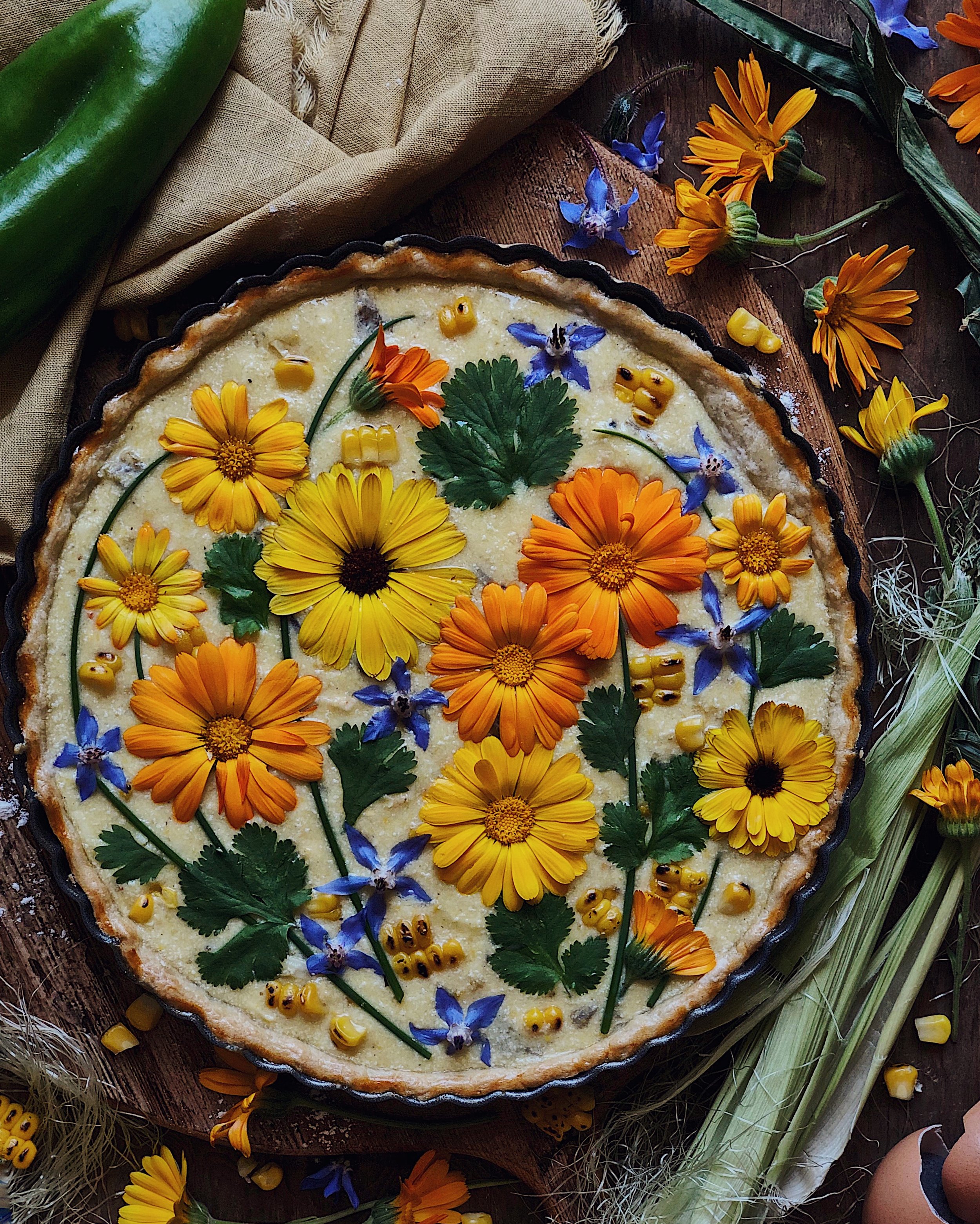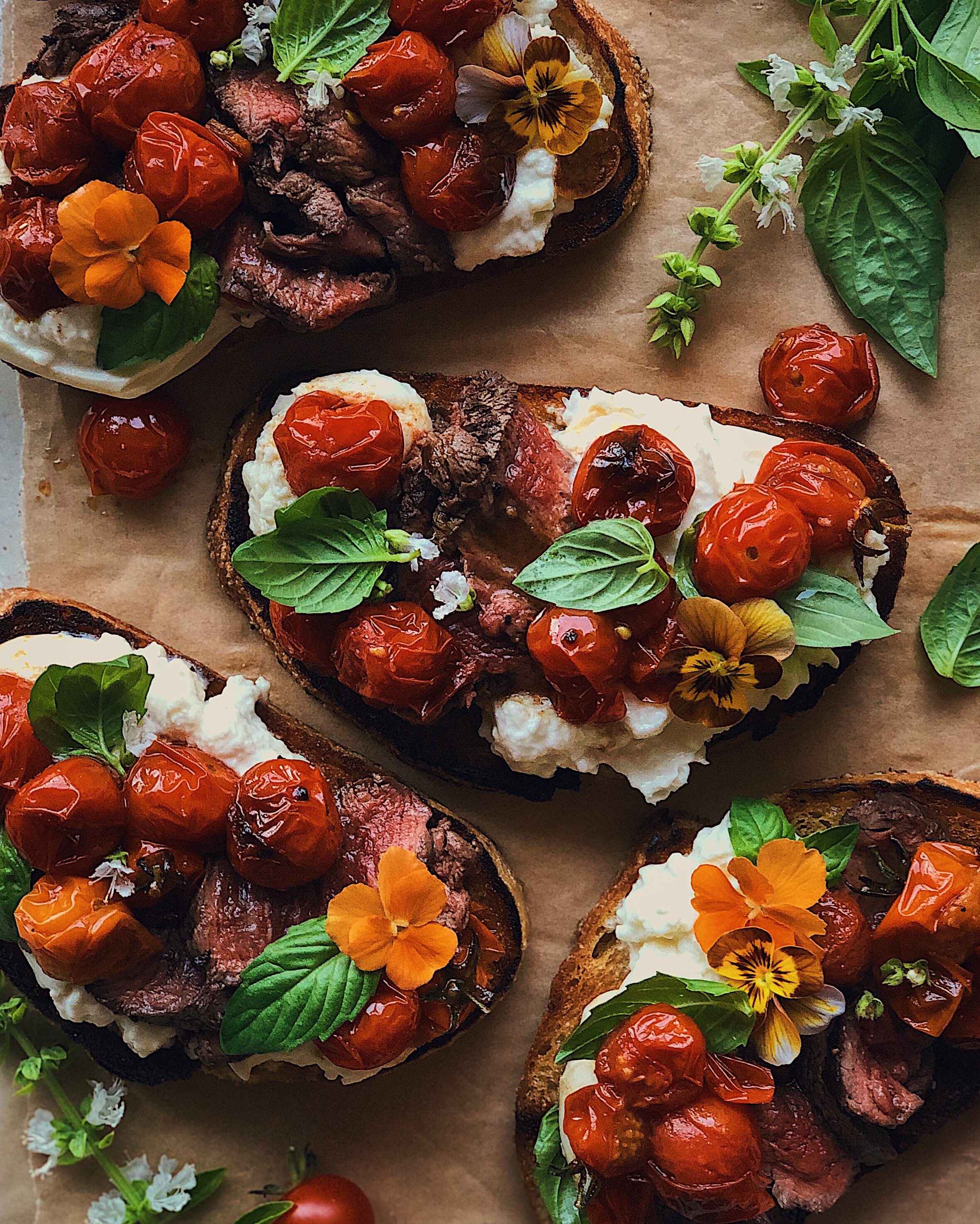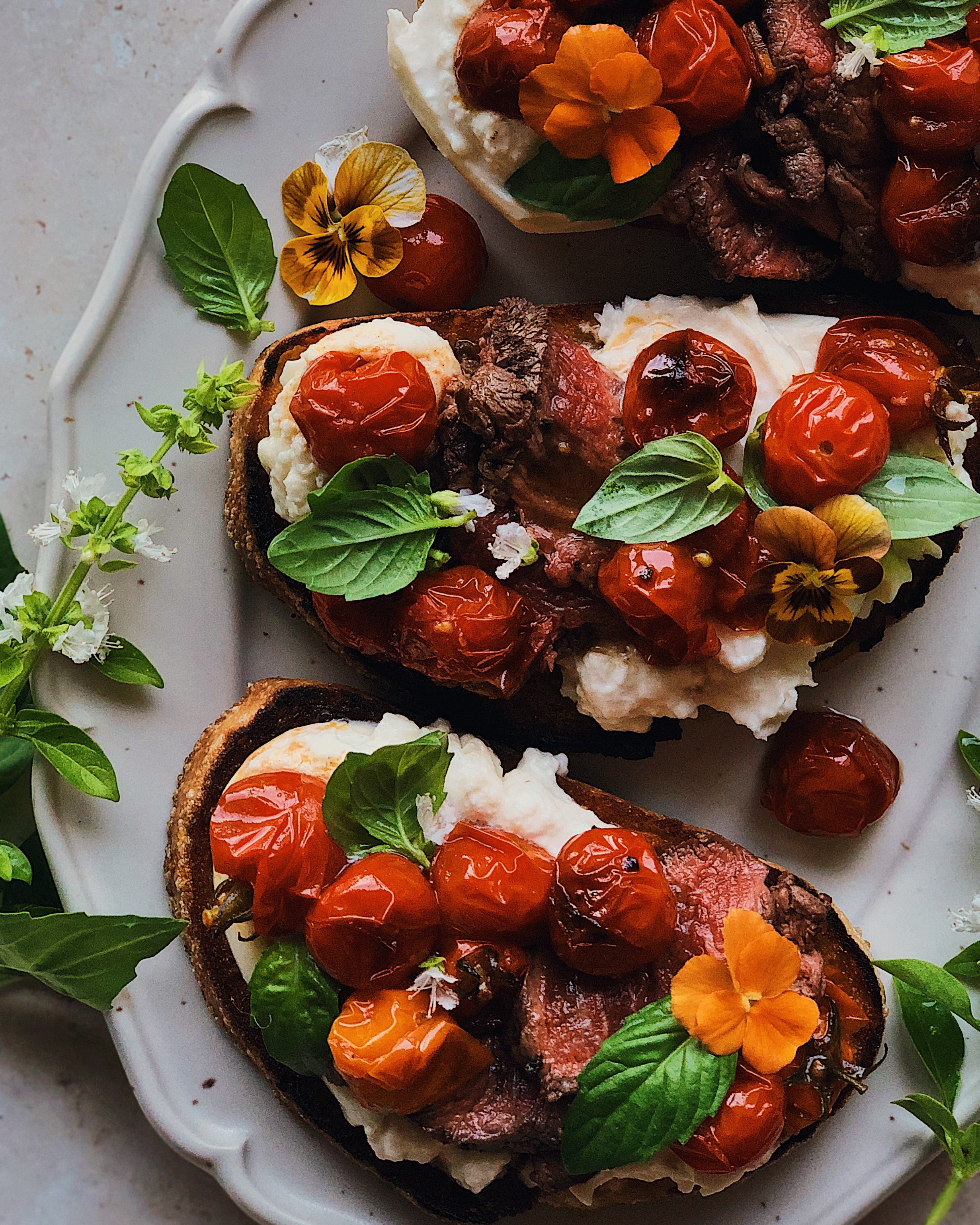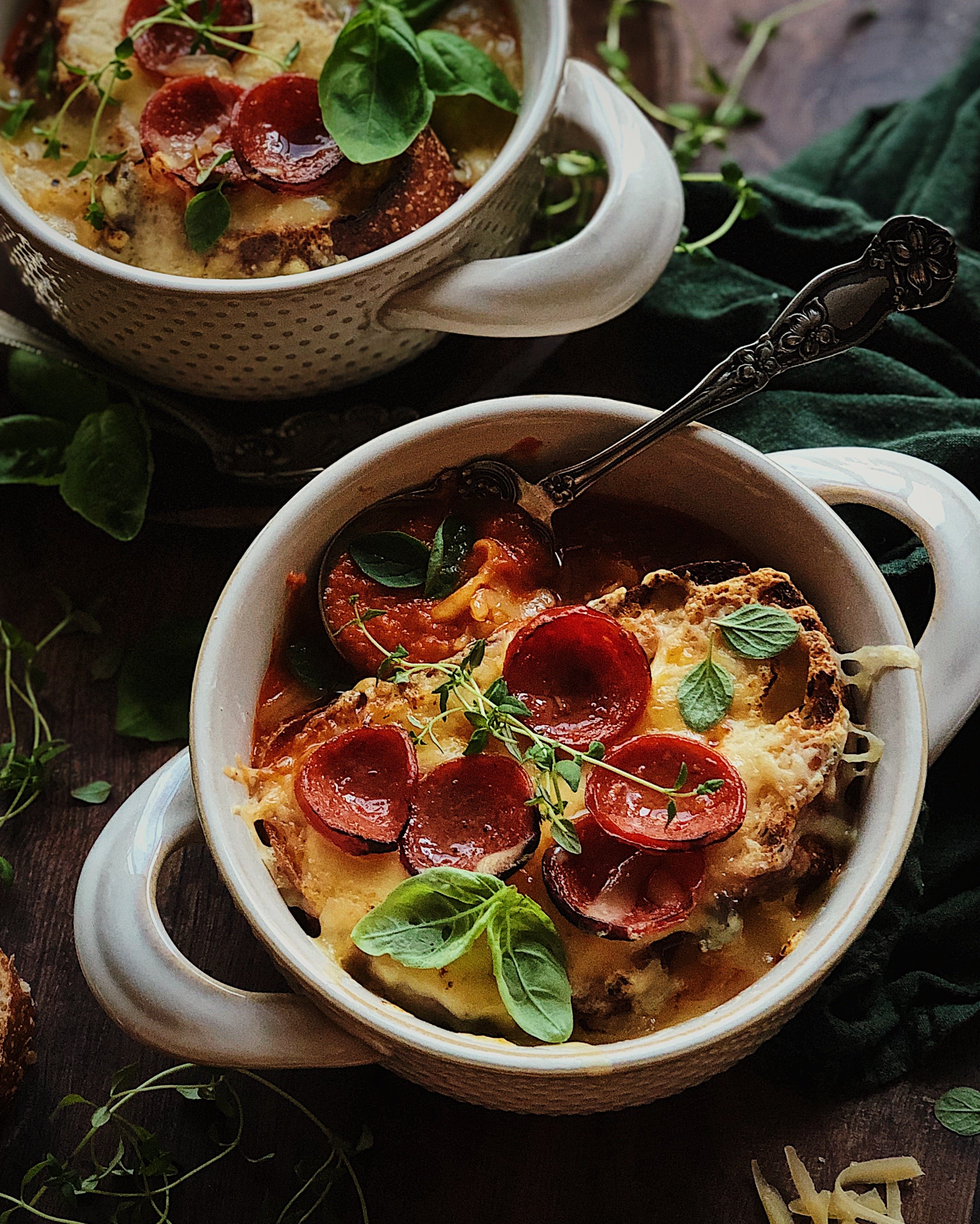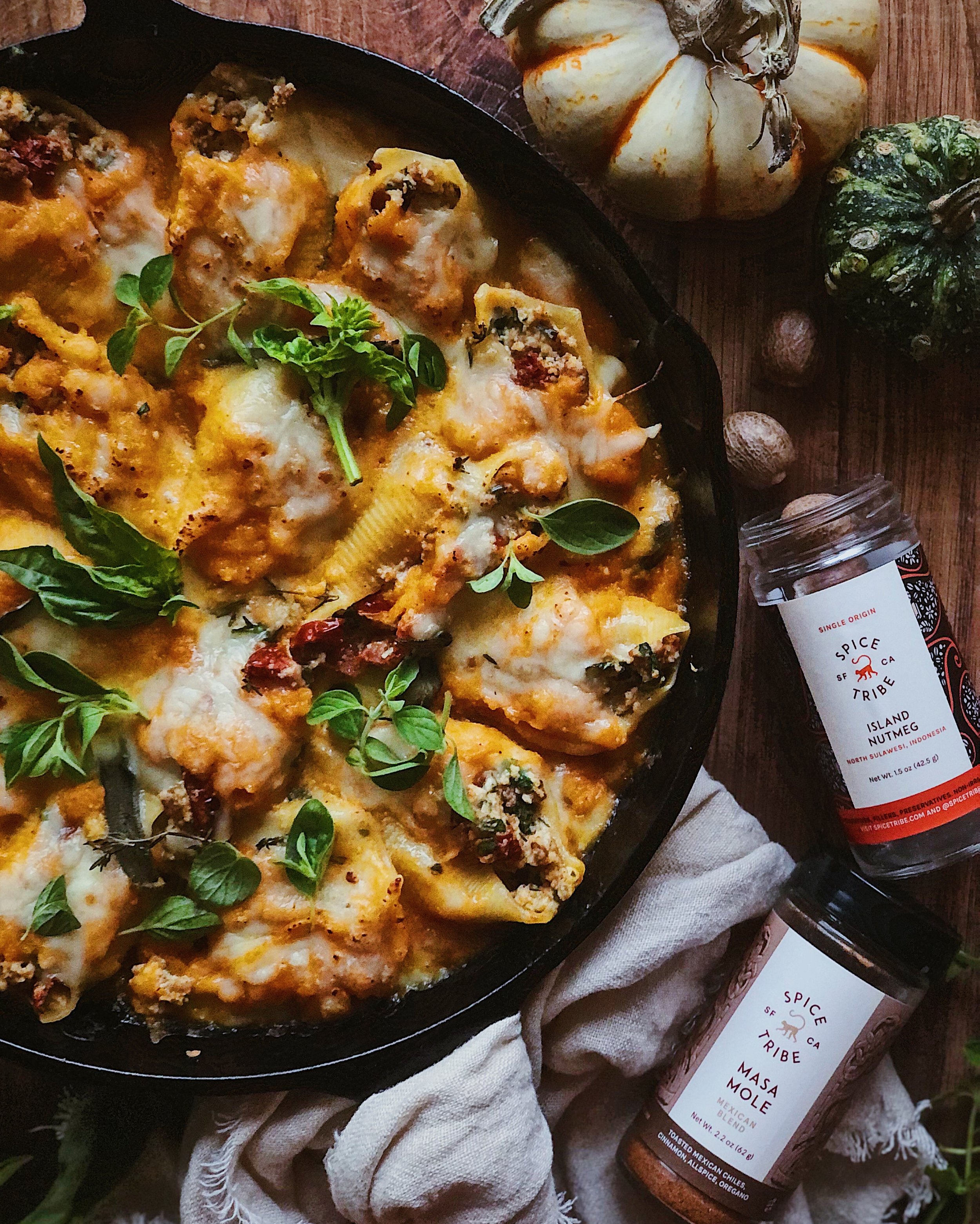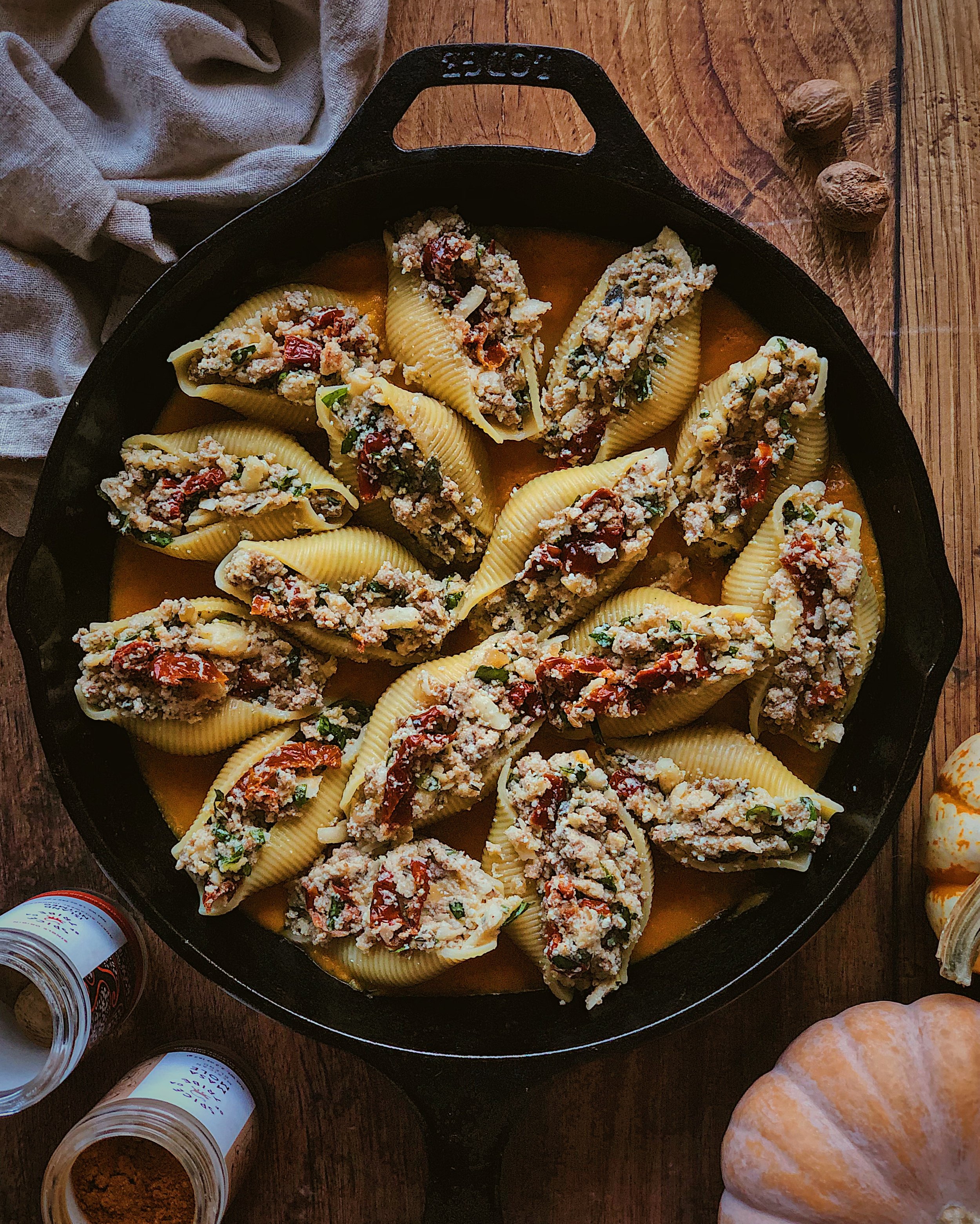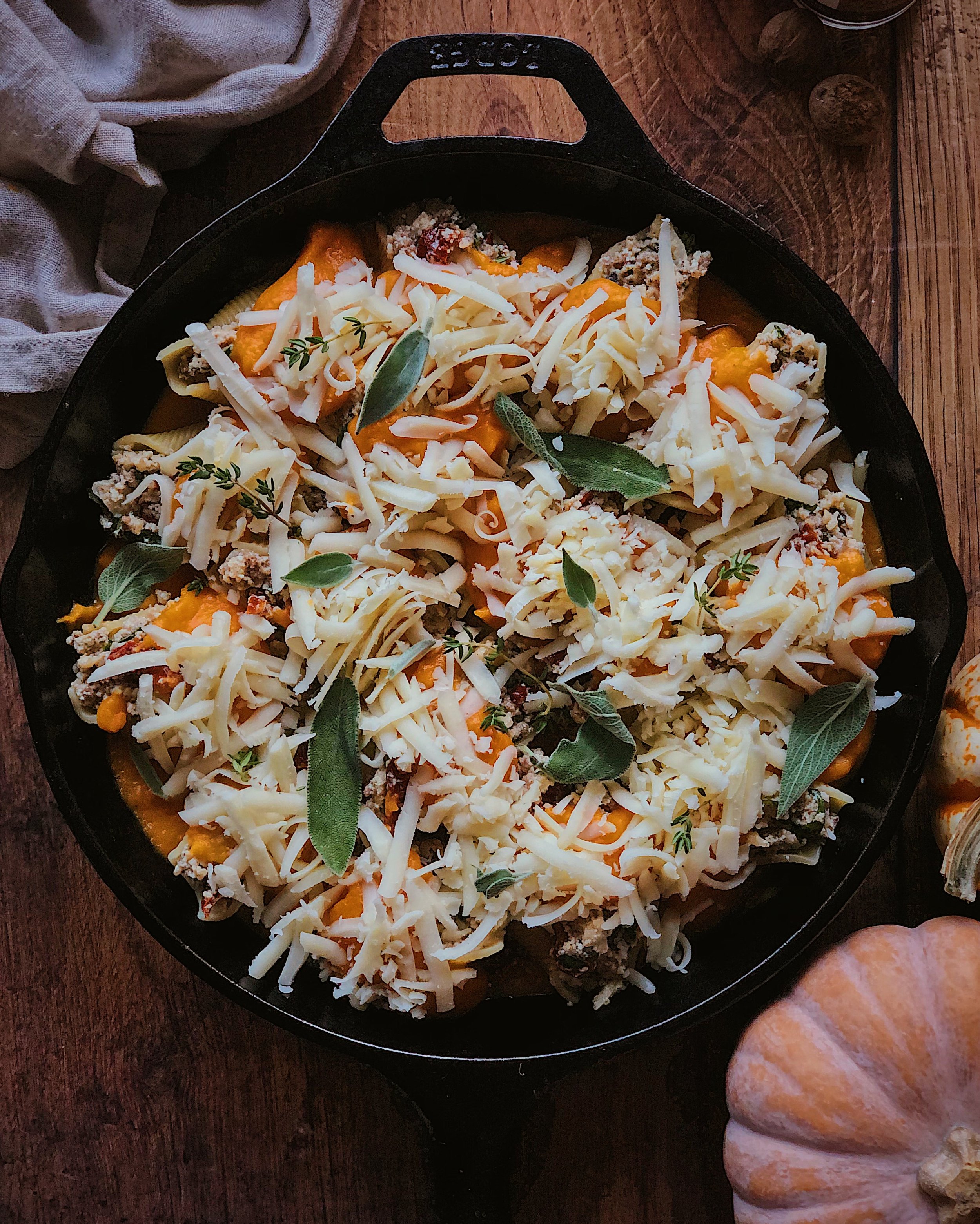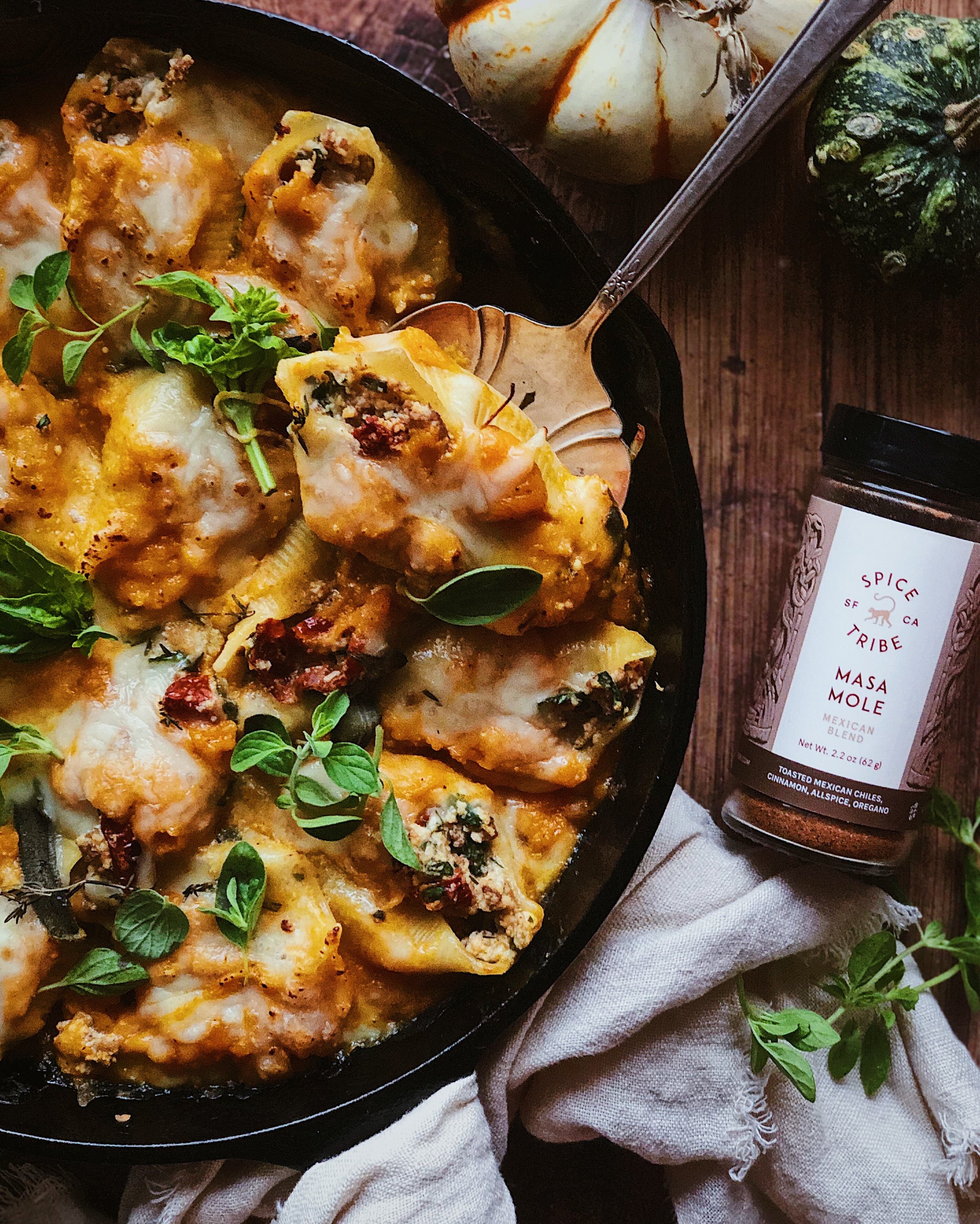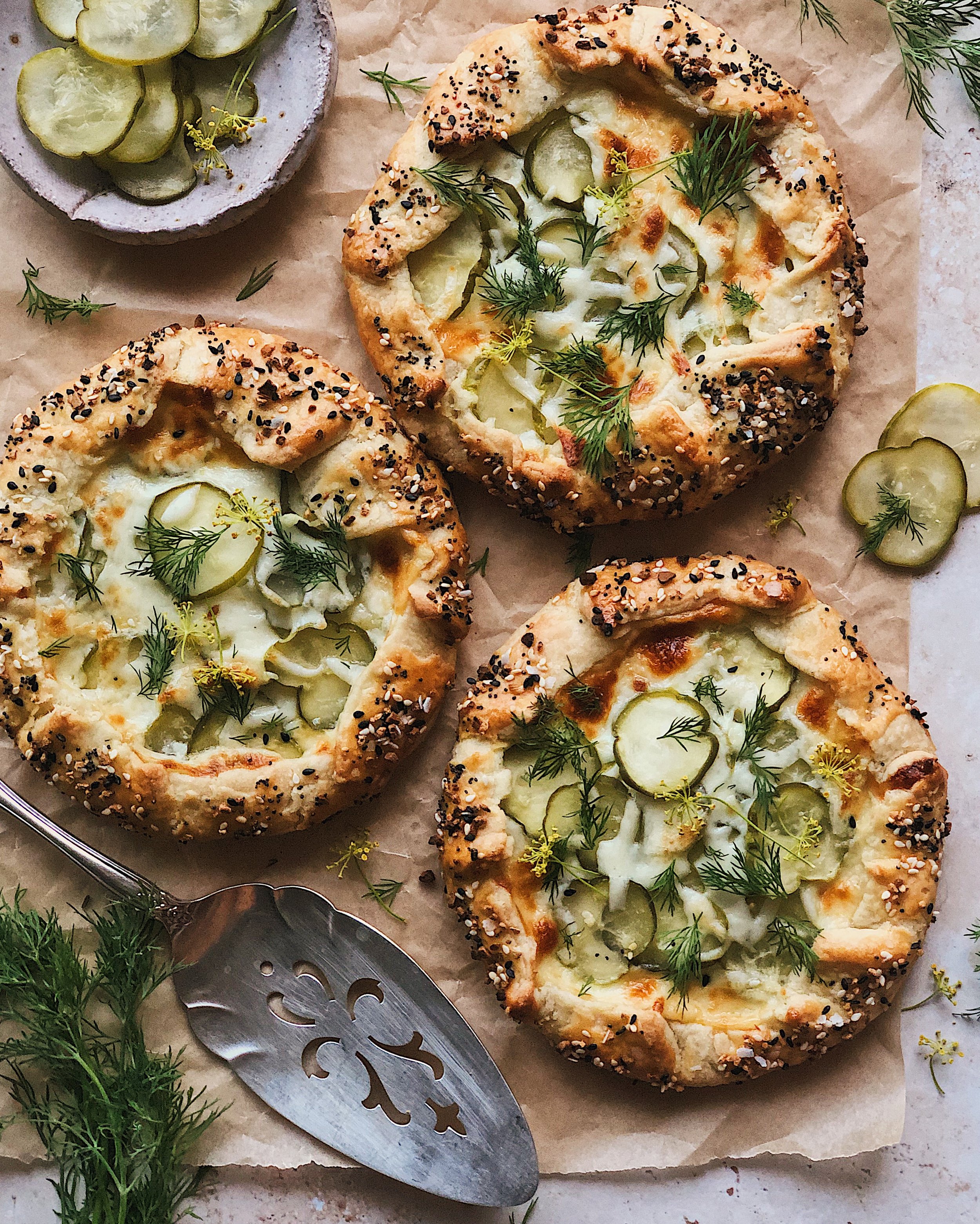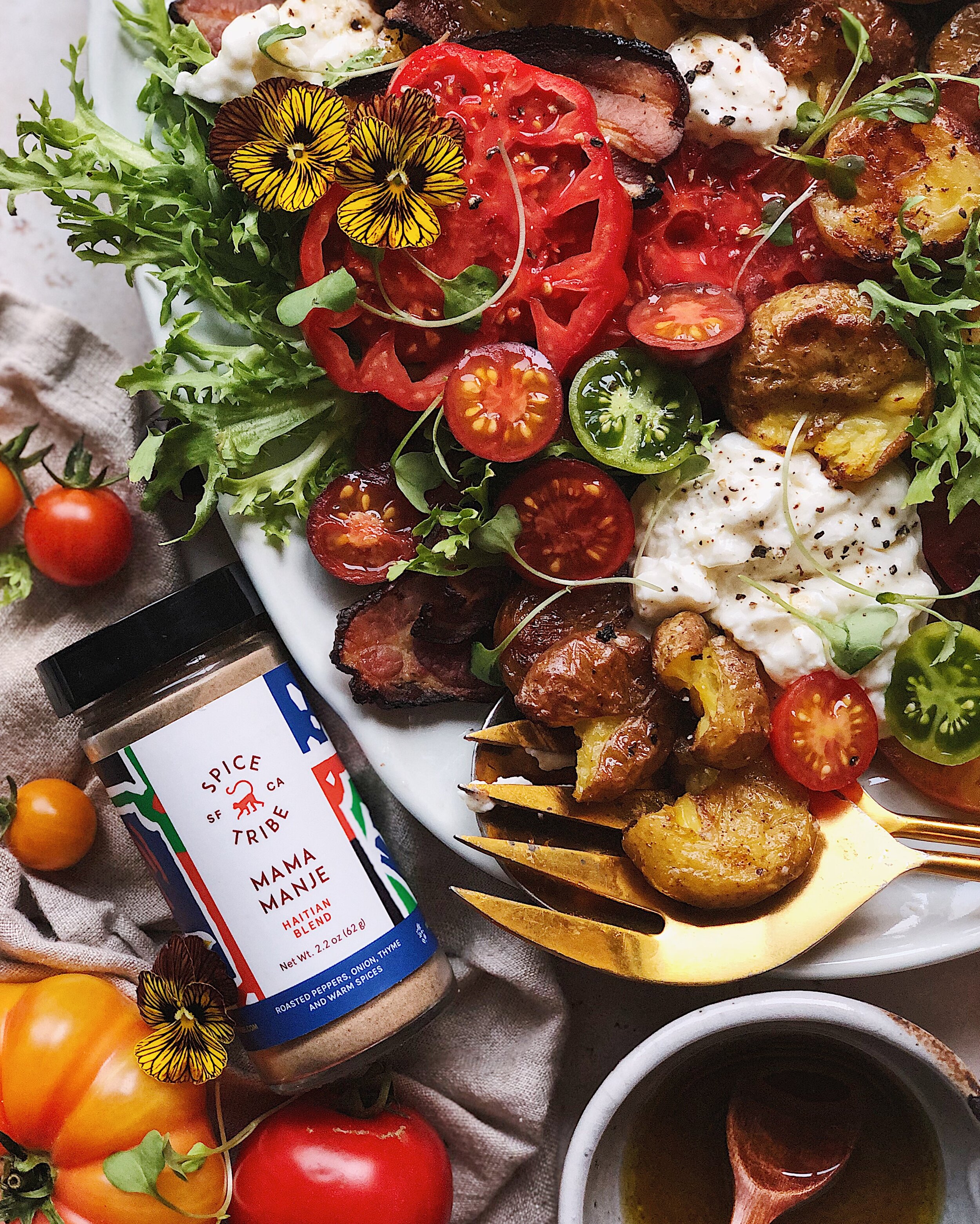Recipe: Mushroom, Sweet Potato, and Cheddar Stuffed Focaccia
/For gatherings like Friendsgiving/Thanksgiving, instead of thinking about just the traditional or typical dishes, I like to brainstorm what will have the biggest wow factor for a group of people without any tedious steps. For this recipe, I partnered with Cabot Creamery to create a stuffed focaccia recipe that is simultaneously impressive and unfussy. Loaded with a combination of sweet potato, pan-roasted mushrooms, caramelized onions, and—of course—lots of Cabot Seriously Sharp Cheddar, this recipe bakes up a big slab of cheesy carby goodness that is easy to slice up and feed a group while serving up earthy, autumnal flavors.
This is a same-day focaccia recipe. For a more minimalist focaccia where you will want the dough itself to develop a more complex flavor, it is typically recommended to allow for a longer fermenting process of at least overnight or even a few days in the fridge. But since this one is a vessel for the mixture of delicious mushrooms, melty creamy sharp cheddar, and other goodies, I opted for a quicker dough recipe. Plus, something I struggle with when I am getting ready to have people over is fridge space, since I’m stocking up on more groceries than normal, so I wanted this recipe to avoid having a big bowl in my fridge overnight.
The dough comes together very easily with the help of a stand mixer, and there are three rest periods for the dough where you just leave it to do its thing and can focus on other tasks, resulting in a nice bouncy, pillowy bread. The only step that involves some attention to detail is decorating, but that’s completely optional! This bread will taste great whether or not you opt to adorn it with extra ingredients as I have here.
I’m proud to have had Cabot as a partner for several recipes now, so when I visited Vermont in the early fall of this year, it was cool to spot Cabot’s distinctive plaid-accented packaging among goods labeled as locally made there. Cabot is a farmer-owned cooperative, which means the ownership of the company is comprised of a group of farmers working together; those New England farmers are also the same people who are raising the cows that provide the milk to produce their wonderful cheeses, butters, and other dairy products. Now that I am back home all the way on the west coast, I can find Cabot cheeses in my local grocery stores too—that’s the proof that those farmers grew stronger by being together. The plaid motif on Cabot’s packaging is a nod to the fact that they are proudly farmer-owned, and to the fabric that connects them.
Even though I’ve gained plenty of confidence in my cooking skills over the years, I never want to take any chances when I am cooking for guests. If I want to make a cheesy focaccia—as I have done for many a dinner party now—I know that using one of Cabot’s cheddars is an easy way to set myself up for success. But let’s get into a little more detail about that, and everything else that goes into making this bread.
Notes on the key ingredients for this Mushroom, Sweet Potato, and Cheddar Stuffed Focaccia:
Mushrooms: Working as a recipe developer has taught me to pay even closer attention to seasonal produce than I did before, and now one thing I look forward to in the colder months is mushrooms! While the standard round button mushrooms are in stores all year, some of the more exciting varieties—like golden chanterelles—are only prevalent at this time of year and to me, their earthy flavor conjures memories of fall and winter hikes crunching on fallen leaves on the damp forest floor. I really got carried away with all the options when I was shopping for mushrooms for this recipe and you definitely don’t have to use this much variety! I do recommend choosing at least a couple different kinds to bring some complexity. Specifically, I find that shitake mushrooms bring a ton of rich umami flavor to the filling and shimeji (or beech) mushrooms look very cute for decorating the top.
Sweet Potato: Incorporating thinly-sliced sweet potato into this recipe brings the autumnal vibes, in terms of both flavor and color. I used a mandoline to get even, thin slices that easily cooked through while the bread was baking. Look for the kind of sweet potato that has vibrant orange or red-orange flesh inside, like a red garnet.
Red Onion: A little caramelized onion brings a lovely subtle sweetness to the filling. The onion, as well as the mushrooms, get pre-cooked on the stove during one of the rest periods for the dough.
Cheddar: This bread incorporates Cabot Seriously Sharp Cheddar in two different formats. I like to grate about one-third of the dairy bar to sprinkle into the bottom of the pan underneath the dough; this crisps up while the bread is baking and becomes the first thing that hits your tongue as you bite into the freshly-baked bread, bringing a nice tang of that sharp cheddar flavor. I break the rest of the dairy bar into rough crumbles and layer some in with the filling, while reserving some to dimple into the bread’s surface. I like the idea of every bite being a little different, with some being a chunky piece of mushroom and others being extra cheesy.
Notes on decorating the stuffed focaccia:
I wanted to add an extra wow-factor for my focaccia since we eat with our eyes first! The decoration that I created uses sweet potato slices to form fall-colored roses and some extra mushrooms to give a hint to what’s stuffed inside. I love that this floral motif can be achieved by anyone, even if they do not have access to edible flowers or the ability to grow their own (like I do for some of my other bakes on this blog). You can definitely get as creative as you like when you are making your own version of this recipe, but here are some tips I can pass on about decorating focaccia as I have here:
Soak some—but not all—of the sweet potato slices in cold water. This will make them stiffer and more hydrated, which will make it easier to poke them into the dough’s surface and prevent them from burning as quickly. It also causes the slices to curl a little, making them look more like rose petals. You’ll also want some unsoaked slices to remain flexible so you can roll them into a spiral to form the center of each rose.
Mushrooms work really well as decorations; since they are so naturally full of moisture they don’t shrivel too much as the bread bakes. I think the shimeji (or beech) mushrooms worked especially well on mine. I also used some golden chanterelles.
Choose herb/vegetable leaves that are flat and tender. Leaves can easily shrivel and crisp up in the oven but for best results, you’ll want to select ones that can be pressed onto the surface of the dough. This direct contact is what will help them preserve their shape in the oven, so the flatter and more flexible the leaf, the better. I used red-veined sorrel here because I love how they have a bit of a purple tint when they come out of the oven and add to the autumnal vibe; baby red chard could be a good substitute. I also used some lemon thyme, which has more tender leaves and flexible stems than other varieties of thyme I find at the grocery store.
Generously brush everything with olive oil before baking. This provides a protective coating on all your edible decorations and reduces how much they will shrivel in the heat of the oven.
Decorating is, of course, the most labor-intensive aspect of this recipe but the good news is that you can do something much simpler, or skip the decorating entirely! Here is how you can adapt the recipe below if you wish to make the yummy bread, but don’t want to spend as much time making the floral motif on top.
Easier version—Fall leaves: Use a cookie cutter to cut the sweet potato slices into fall leaves. You can place these directly on the surface of the dough along with a few mushrooms and baby chard leaves to create a cute autumn forest motif. Brush everything with a coat of olive oil before baking.
Easiest version—Mushrooms only: Reserve a few mushrooms and place them on top of the focaccia as the decoration. Again, you’ll want to coat everything with a generous brush of olive oil to preserve their form and texture. If you choose this option, I recommend using about half a sweet potato’s worth of slices as part of the filling, since you’re not getting any sweet potato flavor on the top of the loaf.
How to Make the Mushroom, Sweet Potato, and Cheddar Stuffed Focaccia
Ingredients
1 cup lukewarm water
1 tbsp sugar
2 1/4 tsp instant dry yeast
2 1/2 cups all purpose flour
2 tbsp extra virgin olive oil, plus about 1/4 cup extra for drizzling
1 tsp kosher salt, divided
4 cups mushrooms, cleaned and broken down into small pieces
2 tbsp Cabot Salted Butter
1/2 red onion, sliced into 1/4-inch pieces
8 oz (1 dairy bar) Cabot Seriously Sharp Cheddar
1 small sweet potato, peeled and thinly sliced
red veined sorrel or baby chard leaves, for decorating (optional)
lemon thyme, for decorating (optional)
Procedure
Prepare the dough: Combine water, sugar, and yeast in the bowl of your stand mixer and stir together gently. Allow to bloom for 5 minutes. Fit the stand mixer with a dough hook and turn on low; gradually incorporate flour, then 2 tablespoons olive oil, then 1/2 tsp kosher salt.
Turn stand mixer up to medium-high and knead for 5 minutes. Dough should pull completely away from the sides of the bowl while the dough hook is spinning, but feel a bit sticky when touched or when not in motion. If the dough seems too dry, add 1 tsp water, or if the dough seems excessively sticky and is not coming together, add 1–2 tsp flour. Knead for an additional 2–3 minutes.
Shape the dough into a ball with your hands. Drizzle a small amount of the extra olive oil into the bowl, add the dough ball, and rub some of the oil on top. Place in a warm spot and cover with plastic wrap or a wet tea towel and allow to rest for 1 hour, or until the ball has doubled in size.
In the meantime, prep the cheddar. Grate roughly one-third of the dairy bar with a box grater. Set grated cheese aside. Break down the remaining cheese into small chunks, about 1/4-inch to 1/2-inch in size; you could cut them into cubes or just use the tip of a small knife to break pieces off. Place cheese chunks in the fridge until needed.
Second rest: Line a 7x11-inch (2 quart) baking dish with parchment paper and coat with a bit of the extra olive oil. Sprinkle the grated cheddar into the bottom of the dish.
Scoop the dough out of the bowl and press out the excess air. Divide the dough in half. Stretch each half into the shape of a rectangle that is slightly smaller than the baking dish; note that the dough will expand so it does not need to fill the size of the whole dish yet. Place one half over the grated cheddar in the dish. Keep the other half on a separate piece of parchment paper that has been lightly oiled with the olive oil.
Cover both halves with plastic wrap or a wet tea towel and allow to rest for 1 hour.
Prepare the filling: While the dough is resting, pan roast the mushrooms and caramelize the onions. Heat a large non-stick skillet on medium. Reserve a few mushrooms for decoration and add the rest to the dry pan. Sauté until the volume is reduced to about two-thirds of the original and the mushrooms are squeaky as you move them around with a spatula. Remove the mushrooms from the pan.
Add the butter to the pan, then add the onion slices. Reduce the heat to low once you notice the color becoming more vibrant. Cook the onions until they are tender and start to brown on the edges, about 10 minutes.
Add the mushrooms back to the pan, as well as 1/4 teaspoon kosher salt. Turn the heat back up to medium. Stir often to encourage evaporation, and cook until the mushrooms seem to have released their excess moisture, about 7 minutes. Remove from heat and allow to cool until the dough is done resting.
Once the dough has completed its second rest, the bottom half should be able to be stretched to fill the bottom of the pan. Shape as needed. Then add about one-third of the sweet potato slices to the pan, followed by most of the cheddar chunks, followed by the mushroom and onion mixture.
Third rest: Place the other half of the dough on top of the mushrooms. Press the two halves of dough along the edges to seal shut and tuck them under, though this does not need to be perfect. Allow to rest, covered, for an additional 20 minutes.
Meanwhile, preheat the oven to 400°F.
Decorate the top of the bread and bake: Press the remaining cheddar chunks into the surface of the bread. Press your fingers into the dough to form additional dimples.
To make a sweet potato rose, cut a slice of sweet potato in half and roll into a tight spiral. Roll the other half around the first. Place this firmly into the surface of the dough where you want the center of the rose to be. Starting with the smallest slices of sweet potato available, firmly insert slices around the rose’s center to form petals. Select gradually larger sweet potato slices and keep adding them as petals until the desired size is achieved.
Repeat to form other roses as desired. (You may not end up using all the sweet potato).
Add vegetable leaves and mushrooms to complete your decoration. Brush everything with a generous layer of olive oil. Sprinkle the remaining 1/4 teaspoon kosher salt over the top.
Bake for 35–40 minutes or until the top is a light brown. Note that after 30 minutes, you may wish to check on your decoration and add small pieces of foil over the parts of the sweet potato that have darkened, to prevent burning.
Carefully lift the bread out of the pan via the parchment paper and allow to set for a couple minutes before slicing and enjoying!
Thank you so much to Cabot Creamery for sponsoring this recipe! Visit their website to find out where you can get their delicious cheeses, such as their naturally-aged cheddars, near you!

















